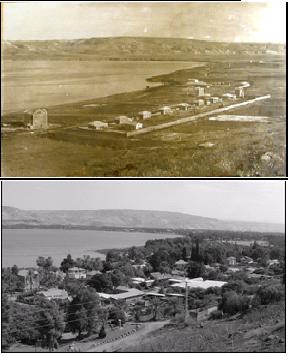A policy proposal prepared for the Water Commission estimates that within three years, a severe shortage of water between the Jordan and the sea is expected and recommends diverting all the precious water, which comes from seawater desalination, to the direct use of the population living along the coast, in Jerusalem and Be'er Sheva

These details were revealed by the program planner, Giora Shaham, a consultant for strategic planning in the water sector, who presented the conclusions of the work, during a seminar on behalf of the Grand Institute for Water Research at the Technion. The symposium was dedicated to the founder of the institute, Professor Uri Shamir, on his 70th birthday and dealt with methods and models to assist in making decisions in the management of the water sector. The event was attended by the most prominent experts in the field, almost all of whom are former students of Professor Shamir.
"The water economy in Israel is right on the brink of a period in which the conflict between the public components of population growth and living standards, the environmental needs and the pressure of water shortages in the countries surrounding us will intensify," said Shachem, "Israel is obligated to a massive and inevitable entry into seawater desalination, which will be expensive Infinitely higher than the cost of producing water from natural sources. The proposed policy recommends the establishment of 7-8 desalination plants, which will serve as the main source of drinking water for 85% of the population - that which lives in Tel Aviv, Haifa and the areas of Beer Sheva and Jerusalem.
The use of the natural water will be for the preservation, cultivation and development of nature and the agriculture that creates the green landscape, for the backup and completion of the supply to the municipal desalination facilities and the supply of water to settlements far from the coastline. Water suppliers will sell water for agricultural use at a price that reflects the full cost of production, transmission and distribution in their supply area. The government support for water prices for agriculture will be in a number of targeted areas, where the government has a public or settlement interest. The prices of water for domestic and industrial use will reflect the full cost of desalination."
Shaham, who designed and implemented the largest environmental project in the water sector in Israel - the flooding of the Hula, and the master plan for water drainage in Tel Aviv, criticized the fact that in recent decades the water sector has been run without comprehensive public guidance, which takes into account all the public considerations necessary to guide the development and regulation plans of Water Sector.
In the top photo, the Kinneret settlement, from the beginning of the last century (1918) - without a single tree in the area, in front of a photo taken this year, by Giura Shaham, from the exact same spot. The houses remain as they were, only the agriculture that creates the landscape has changed.

2 תגובות
The solution is simple - at every electricity company station there is also a built-in water desalination plant that desalinates water at an extremely low price.
The state prohibits the use of these facilities due to business restrictions on the growth of H. The electricity, but when there is no choice it's a shame to go head to head.
In addition, you should avoid growing crops that require a lot of water.